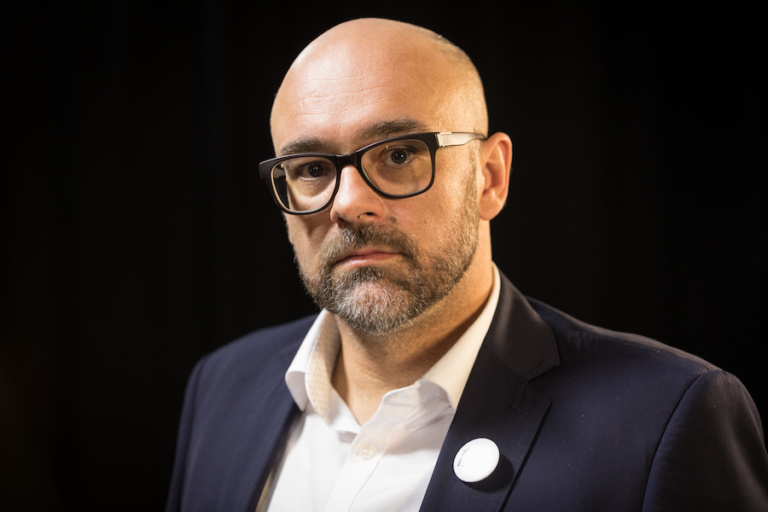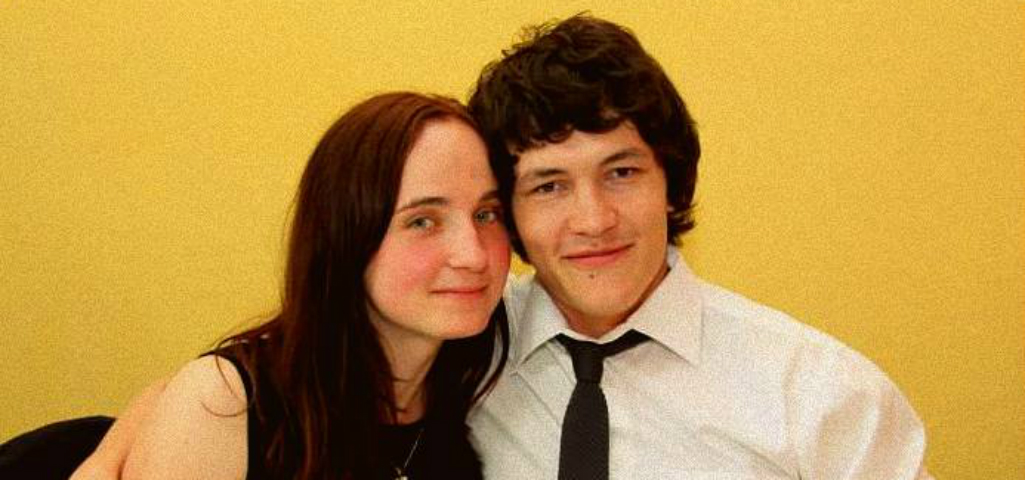
Peter Bárdy, editor in chief of the portal for which the murdered journalist Ján Kucijak worked talks to Cenzolovka about his colleague who investigated embezzlement of public money and mobsters with political connections
In February 2018, the investigative journalist of the news portal Aktuality.sk, Ján Kuciak, was brutally killed, together with his fiancée Martina Kušnírová, because, as it was later established, of the article he was working on.
The killing of the journalist, the first one since Slovakia has become an independent country, has triggered a wave of discontent throughout the region. The article on which Kuciak was working at the time of the murder was soon published in a number of newspapers in Slovakia, as well as in some Czech and European media outlets.
People took to the streets in protest. In Bratislava, the capital of Slovakia, 25,000 people protested under the slogan „We Don’t Want 1990s Back“
A week later, twice as many people took to the streets at the protest called „Let’s defend an honest Slovakia“, and further protests had happened in another 40 Slovak cities.
Kočner is not innocent. He has so far only been „acquitted“ for lack of evidence and will continue to be decided by the Supreme Court. I have no doubt that Kočner will be punished.
The pressure of the international and local community was so intense that it in short order led to the fall of the government and to the arrests of suspects. During the ensuing trials, two people were convicted in the first instance. One of the two killers, former soldier Miroslav Marček, pleaded guilty and was sentenced to 23 years in prison. A middleman who cooperated with the police, Zoltán Andruskó, was sentenced to 15 years in prison.
The trial against Tomáš Szabó, who was charged with the murder of Kucijak, Alena Zsuzsova, who was accused of providing assistance, and Marián Kočner, a controversial businessman with strong ties to the top of the government who was suspected of ordering the killings, has ended recently. Szabó was sentenced to 25 years in jail, while Zsuzsova and Kočner were acquitted.
In an unrelated trial, Marián Kočner was sentenced to 19 years in prison for the fraud related to the television network.
We talked to Peter Bárdy, the editor-in-chief of the Slovak portal aktuality.sk since 2008, and we asked him about Ján Kucijak, the changes that took place in Slovakia after his murder, and about the trials.
Cenzolovka: You worked with Ján Kuciak for several years. How do you remember him?
Peter Bárdy: I hired Ján Kuciak in the summer of 2015. He was my colleague and a member of the Aktuality.sk investigative team. Ján was a modest man, but a great professional. I used to call him – the architect of Slovak data investigative journalism.
He was not an egoist in his work. He did not desire to be the best, first, exclusive. Instead, he tried to connect people and work bringing them together.
It was not unusual for him to help with data analysis in his free time, even to colleagues from competing media.
Ján Kuciak combined human good in its purest form and an immense effort to work for society, for the country.
In his work, he focused on corruption in the state administration, overpriced state purchases, manipulated public procurement, and he wrote about the mobster Marian Kočner, about Slovak oligarchs connected to the government.

Ján Kuciak with his fiancé Martina Kušnírová
Practicing journalism in Slovakia is not dangerous
Cenzolovka: Was journalism perceived to be a dangerous profession at that time?
Bárdy: Despite the fact that in the past there were sporadic physical attacks on Slovak journalists and that two journalists have been missing for several years, journalism in Slovakia was not considered a dangerous profession. And it is not so much regarded even today, more than two and a half years after the murder of Ján Kuciak.
We all believe that this heinous act was something extraordinary.
I do not want us to accept attacks on journalists or attempts to kill them in an EU Member State. I believe that the government, parliament and the state institutions will do their utmost to ensure that this does not happen again. And, of course, the media also have to do a lot of work to protect ourselves.
I am convinced that without international pressure, without the interest of the EU and the European institutions, we would still be waiting to this day, and perhaps we would still not know the names of the killers.
As for the legislation, there are still big gaps, but the government has promised to address them.
Cenzolovka: The killing of Ján Kuciak and his fiancé was described as „sending shock waves“ through Slovakia that led to the largest mass protest since the fall of communism and ultimately to the fall of the government. How important was support of the public?
Bárdy: It was something special. After years of society tacitly tolerating the actions of the government that have hurt democracy in my country, tens of thousands of people have suddenly decided to speak. And to speak out loud.
They took to the streets and told the government that they did not want it. That they don’t want a government that protects the mobsters, but that they want a government that protects good people. They rejected a government that did not save Ján Kuciak.
We have not personally been involved in it. We didn’t stand on the podium, we didn’t shout slogans, we didn’t upset people. We may have had a right to do so, but we did not want to do it because it would immediately turn against us.
We did not want politicians to abuse this situation. And it turned out that it was the right decision. I am proud of all those who supported us and I am grateful to them until my death.
Without international pressure, we would not know the names of the killers
Cenzolovka: In Serbia, we have three unresolved murders of journalists and only one trial – for the murder of Slavko Curuvija in 1999- on which we had to wait for 15 years, and the matter is still not settled. What made the process of sentencing perpetrators of Ján Kuciak’s murder so efficient?
Bárdy: I am convinced that without international pressure, without the interest of the EU and the European institutions, we would still be waiting to this day, and perhaps we would still not know the names of the killers.
The people took to the streets and told the government that they did not want it. That they don’t want a government that protects the mobsters, but that they want a government that protects good people. They rejected a government that did not save Ján Kuciak.
The excellent work of the investigation team in cooperation with EUROPOL and EUROJUST is confirmed by the fact that three people are already convicted. However, we are still waiting for the perpetrator of the murder to be punished.
Cenzolovka: Recently, there was possibly another „shock wave“ in Slovakia, this time provoked by the court’s decision to acquit businessman Marian Kočner of charges of ordering the murder. Do you believe that in the end the justice will be served?
Bárdy: Of course, I was very muted, frustrated, disappointed after the verdict … But then I thought it wasn’t over.
This is not a romantic story, but a cruel event that must be evaluated responsibly.
I understand the judges if they have doubts about the sufficiency of the evidence, but on the other hand, I am sure that they can consider Marian Kočner as the commissioner of the murder.
Kočner is not innocent. He has so far only been „acquitted“ for lack of evidence and the process will continue to be decided by the Supreme Court. I have no doubt that Kočner will be punished.
Please find the original version of this interview, written in Serbian, on this LINK.